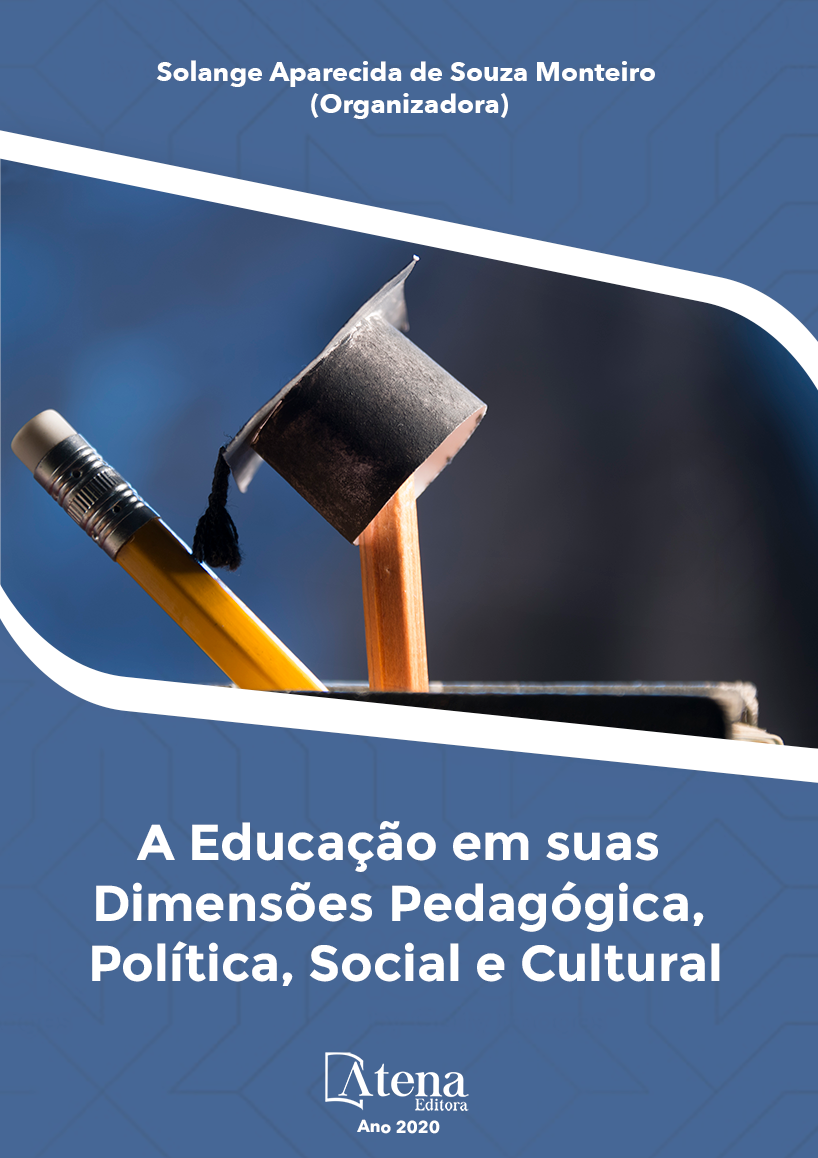
AS IMPLICAÇÕES DO TRABALHO INFANTIL NO DESENVOLVIMENTO DA APRENDIZAGEM
O presente artigo socializa resultados
de uma pesquisa de iniciação científica
concluída em 2019 pela Universidade Federal do
Amazonas, grupo de pesquisa, Comunicação,
Tecnologia e Cultura na Educação Presencial e
a Distância (CEFORT). O estudo se concretizou
mediante os objetivos de analisar e compreender
quais as consequências do trabalho infantil
no processo de ensino e aprendizagem da
criança e adolescente. Segundo a Constituição
Brasileira em vigor a partir de 1988, a execução
de qualquer trabalho por crianças é proibida
para menores até 14 anos, e a partir dos
catorze é permitido somente na condição de
menor aprendiz, e, mesmo nesta condição,
o trabalho não pode ser noturno, perigoso ou
insalubre. Registra-se ainda no Brasil que o
número de trabalhadores precoces alcança um
percentual de 5% da população que tem entre 5
e 17 anos de idade. A coleta de dados assim se
realizou: inicialmente, levantaram-se registros
de denúncias junto ao Conselho Tutelar da
Zona Centro-Sul por meio de uma entrevista
com o Conselheiro responsável visando colher
evidências a respeito de como o órgão intervém
no combate/minimização do trabalho infantil
na localidade; posteriormente, numa Escola
Estadual situada na mesma zona, entrevistouse aproximadamente, quatro professores; dois
pedagogos e o Gestor da escola; também se
aplicou um questionário com três crianças
identificadas na situação de trabalho precoce. O
processo de análise dos dados embasou-se no
materialismo histórico dialético. Constatou-se
que de fato, ocorrem impactos na aprendizagem
das crianças e adolescentes submetidas ao
trabalho infantil: é comum, evasão escolar
e chegarem cansados, não demonstrarem
interesse pela aprendizagem dos conteúdos
ensinados em sala de aula, quanto às ações da
escola para minimizar a situação de exploração
tem se resumido a acionar o Conselho Tutelar
buscando providências legais; os professores precisam ter postura cidadã ao intervir
nas situações envolvendo a complexa problemática do trabalho infantil.
AS IMPLICAÇÕES DO TRABALHO INFANTIL NO DESENVOLVIMENTO DA APRENDIZAGEM
-
DOI: 10.22533/at.ed.27620130225
-
Palavras-chave: Educação e Infância; Trabalho Infantil; Aprendizagem Escolar.
-
Keywords: Education and Childhood; Child labor; School learning.
-
Abstract:
This article presents the results of a scientific initiation research conducted
in 2019 by the Federal University of Amazonas, under the Communication, Technology
and Culture in On-Site and Distance Education (CEFORT) research group. Its goals
were to analyze and understand the consequences of child labor in the process of
teaching and learning of children and adolescents. According to Brazilian Constitution
(in force since 1988), the execution of any work by children is forbidden for children
under 14 years old, and above the age of fourteen is allowed only as an apprentice,
and even in this condition, work can not be nocturnal, dangerous or unhealthy. It is
also registered in Brazil that the number of early workers reaches a percentage of
5% of the population between 5 and 17 years old. The data were collected initially
by the survey of complaints filed with the Central-South Zone Guardianship Council
through an interview with the Counselor, aiming to gather evidence on how the agency
intervenes in the battle against / minimization of child labor in the area; later, in a State
School in the locality, approximately four teachers were interviewed; two pedagogues
and the school manager; A questionnaire was also applied with three children identified
in the early work situation. The data analysis was based on dialectical historical
materialism. It was found that, in fact, there are impacts on the learning of children
and adolescents exposed to child labor: school dropout, fatigue and lack of interest on
learning the subjects taught in the classroom. As for the school’s actions to minimize
the situation, the measures boil down to calling on the Guardian Council to seek legal
action; However, it is important that teachers have a citizen attitude when intervening
in situations involving the complex problem of child labor.
-
Número de páginas: 16
- Davi dos Santos Almeida
- Maria de Jesus Campos de Souza Belém


